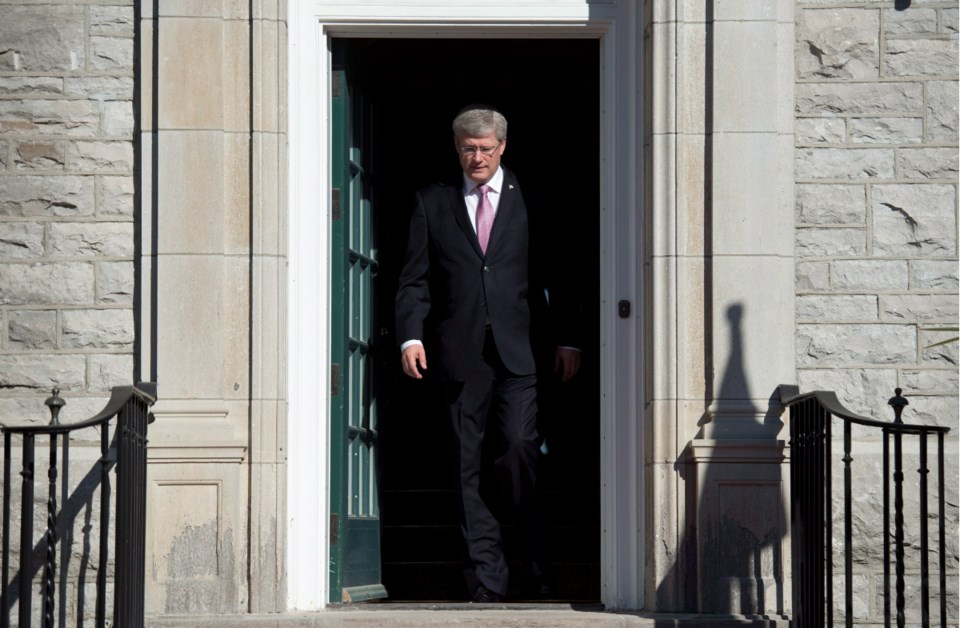Received opinion has it that by calling a federal election further ahead than usual, Stephen Harper will benefit from the longer campaign. Dropping the writ 11 weeks before the polls open, as Harper is reportedly poised to do, means each party can spend to a higher limit than usual.
And the Tories have already raised more than their opponents. At the end of last year, the Conservative war chest stood at $16.5 million, the Liberals had $11.3 million, Tom Mulcair and the NDP were at $8.1 million and the Greens had $1.8 million.
It’s likely — indeed certain — that each party has increased those totals in recent months. And surprisingly, the NDP topped the spending list at the last election, narrowly beating the Tories for first place. So maybe they can repeat that performance this time around.
But the larger issue is whether, within reasonable limits, a spending advantage translates into electoral victory. Between them, the Conservative and Wildrose parties easily outspent the NDP in last May’s Alberta election, and look how that turned out.
Here in B.C., the provincial Liberals had the largest bankroll going into the 2013 election. Yet the NDP were miles ahead until the last minute, when party leader Adrian Dix reversed course on the Kinder Morgan pipeline project. But for that misstep, the NDP might have cruised to victory, their leaner war chest notwithstanding.
And there are other reasons to question Harper’s strategy. One of the major problems confronting the federal Liberals since Jean Chrétien left has been organizational chaos at the riding level. The Grits take too long to nominate candidates, fail to find enough star power and struggle with financing.
But does a lengthier campaign hinder or help that problem? You could certainly argue that when it comes to straightening things out at the local level, the longer the Liberals have, the better. It’s not how you start that matters, but how you finish.
Put another way, if the other guy is flat on his back, why give him time to recover?
Then again, it’s clear going into this election that the country has arrived at a tentative view of the Liberal leader, Justin Trudeau. Basically “just not ready,” as the Tory attack ads keep hammering, seems to be the general view.
But how will Trudeau fare if given more time to make his case? Perhaps it will simply confirm that he takes after his mother more than his father.
But that’s already where he’s at. Give him a chance to clean up his act and learn the business, and who knows, maybe he can turn things around.
What about the NDP? My sense is it doesn’t matter. Mulcair won second place last time around by capturing an improbable 58 of 75 seats in Quebec.
Can he do that again? Doubtful. There was a deep sense of frustration among Quebecers with Gilles Duceppe and the Bloc Québécois in 2011.
But what has Mulcair done since then to earn their lasting support? What indeed could he do that the rest of the country would live with? What he might gain from the lift in Alberta he will probably lose in Quebec.
The real mystery in this election is why it’s happening at all. The Canadian Constitution sets the lifetime of federal (and provincial) parliaments at five years.
For reasons I have never understood, political leaders across the country took it into their heads to reduce their terms in office to four years.
If the B.C. Liberals had avoided this foolishness, come the end of their present term they would have enjoyed an additional four years in office.
Equally, Harper has every right to govern until 2016. What did he gain by surrendering 20 per cent of his mandate? On Oct. 19, he might be asking himself that question.



